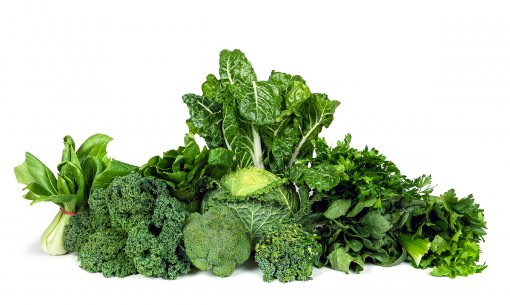Why do guinea pigs need vitamin C?
You may have heard that guinea pigs have a special requirement for vitamin C in their diet – but why do they need it and how can you make sure your piggie gets enough? Read on to find out why we have to be so careful about vitamin C for our guinea pigs, what foods contain it and what signs of guinea pig vitamin C deficiency you should look out for.
Do guinea pigs need vitamin C like we do?
We know that vitamin C is good for us humans, and it’s just the same for our guinea pig friends. This special vitamin is so important because it’s used to make collagen, which is a building block for lots of different types of body tissues. This means that vitamin C is needed for healthy skin, joints and gums, and it’s also used in wound healing. What’s more, it’s vital for the immune system to work properly – this explains why we’ve all been told to eat an orange if we’re feeling ill!
Given all these uses of vitamin C, it’s very important for health. But why do we only talk about vitamin C for guinea pigs and not our other pets? Interestingly enough, pretty much all other animals we keep can actually make their own vitamin C in their bodies. So rabbits, hamsters, gerbils and our other pocket pals don’t have to worry about how much of this vitamin they get in their diet. It’s just guinea pigs and us humans who need to get enough vitamin C in our food.

What happens in guinea pig vitamin C deficiency?
Since vitamin C is important for so many different parts of the body, there are a whole range of symptoms that your piggie could develop if they don’t have enough of it. You may see that they have a poor coat, ulcers on their skin or gums, diarrhoea, tooth problems, or swollen feet or joints. As well as this they may be reluctant to move about normally, and they may seem poorly and go off their food.
The general name for guinea pig vitamin C deficiency is ‘scurvy’ – just like you might have heard of sailors getting when they were on ships without any vitamin-rich fruit and veg. To avoid the symptoms of scurvy, it’s vital that your guinea pig gets enough vitamin C in their diet.

Stabilised vitamin C for maximum benefit
For guinea pigs to get enough vitamin C, they’ll need a nutritious and well-balanced diet. A healthy diet for piggies will be about 80% hay plus a portion of special guinea pig food and some fresh veg. It’s the guinea pig pellets and veg that will be the main sources of vitamin C, and there are a few things to think about when you’re choosing these.
In terms of packeted food, it’s important to choose a guinea pig food high in vitamin C. However, it’s not just the amount of this vitamin added to the food that matters – there are a couple of reasons why the amount of vitamin C that you read off the packet may not match up with the amount your piggie is taking in.
Firstly, vitamin C is relatively unstable and tends to degrade over time, especially if it’s exposed to light, heat and moisture. This means that if the food has been sitting for a long time on the shelf, your piggie might not get much vitamin C from it at all! To address this problem, it’s important to follow the manufacturer’s storage and ‘use by’ instructions. It’s also worth picking a diet that contains vitamin C in a stabilised form to stop it degrading so quickly. At Supreme all our guinea pig diets contain stabilised vitamin C to ensure that your pet gets the maximal benefit.
The second thing to think about is whether your guinea pig is eating all of the food they’re given. In many mix foods, vitamin C is added to the pellets but these are often the least tasty bit, meaning that some guinea pigs prefer to leave them behind. We’ve put a lot of thought into addressing this issue with our Gerty Guinea Pig Tasty Mix. Instead of using traditional ‘cold-pressed’ pellets, we use tasty extruded nuggets that are cooked at a higher temperature to give a great taste and texture that guinea pigs love! For those really picky eaters out there, we’ve locked the benefits of this mix into the single-component alternative Gerty Guinea Pig Tasty Nuggets.
Besides pellets, the second main source of vitamin C in guinea pig diets is fresh veg. Options that are particularly high in vitamin C include kale, parsley, spinach, salad peppers and broccoli (the florets not the stems). As a general guide, most of your guinea pig’s veg portion should be leafy greens.

What should you do if you suspect guinea pig vitamin C deficiency?
It’s possible for guinea pigs to get enough vitamin C from a healthy diet including the right pellets and veg, but there are also vitamin C supplements out there for piggies that need a bit of extra help. If you have any concerns, it’s worth talking through your guinea pig’s requirements with your vet to decide what would be the best option for them. Reasons why guinea pigs may need more vitamin C than usual are if they’re growing, pregnant, nursing young babies, ill or suffering from signs of scurvy.
So the answer to ‘do guinea pigs need vitamin C?’ is a resounding ‘yes’. Vitamin C is an important part of your piggie’s diet, but there are lots of other things to think about when you’re setting up their daily menu. Find out more about why guinea pigs need hay and what’s the best sort to feed them in our guide.






